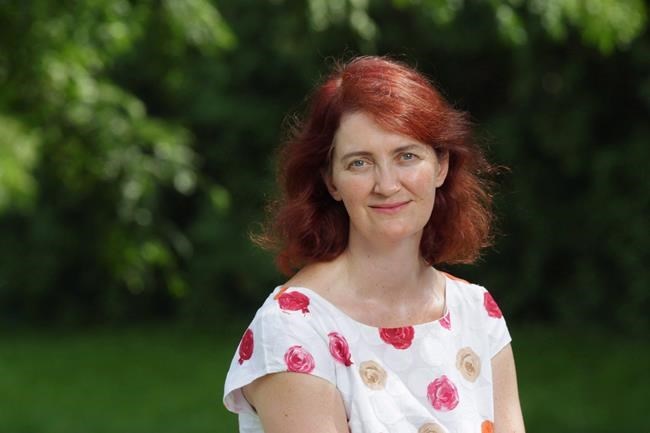When Emma Donoghue set out to write a work of historical fiction set during the Spanish flu pandemic, she never predicted that history would repeat itself by the time she filed her final draft.
Before she started writing on the 1918 outbreak about two years ago, Donoghue said she hadn't given much thought to what it would be like to see the modern world seized by a mysterious plague.
As the novel coronavirus swept China early this year, the London, Ont.-based author said she was too focused on assisting the local theatrical adaptation of her blockbuster book "Room" to notice the parallels to her forthcoming novel, "The Pull of the Stars."
But by March, the outbreak hit Canada, shutting down the Grand Theatre's production of "Room" on opening night. Soon after, her publisher asked her to move up the release date.
"The Pull of the Stars," which is out Tuesday, was supposed to be out next year, but the subject matter proved too prescient to hold back.
"Any pandemic, whether in 2020 or 1918, acts as a kind of X-ray revealing what's really going on in a society and decisions that we've all collectively agreed to," Donoghue, 50, said in a recent interview.
Her book explores how a pandemic exacerbates pre-existing systemic ills, which also a major topic of discussion in 2020 given the impact of COVID-19 on marginalized communities.
"What we're all saying during COVID is that a virus doesn't spread at random. It hits the vulnerable,"
"The Pull of the Stars" takes place in a Dublin hospital pushed to the brink between the casualties of the First World War, a deadly strain of influenza known as "the grippe" and the commonplace ravages of poverty.
Nurse Julia Power must contend with these forces as she cares for her flu-sickened patients in the maternity ward, each birth posing potentially deadly risks to both mother and baby.
She's assisted in this precarious endeavour by two outsiders — one a victim of a system that treats certain lives as disposable, the other rebelling against it.
In unspooling the contained three-day narrative, Donoghue sought to highlight the workday heroism of health care, as well as the political aspects of the profession.
That message feels all the more poignant as politicians and public health officials face off over how to balance economic and medical interests in the fight against COVID-19, she said.
But Donoghue, who consulted with health professionals while editing "The Pull of the Stars" during the COVID-19 pandemic, doesn't hesitate to say whom she sides with.
"The main lesson I tend to draw is trust science more than politics," said Donoghue. "Health can't be considered to be a matter in isolation. Health is connected with every other social decision we make."
It's no coincidence that pandemics bring civil unrest to the fore, said Donoghue, particularly when conflict and contagion converge to lay bare long-standing injustices.
In early 20th-century Ireland, the twin massacres of the First World War and the flu outbreak prompted many Irish citizens to rise up against British rule.
Donoghue sees echoes of that history in our current reckoning with anti-Black racism and police brutality following the May killing of George Floyd in Minneapolis.
"It is fascinating how big, terrible things like wars (and police violence) do bring about social change, because they shake things up, and they allow you to start asking the big questions."
Donoghue is no stranger to fictionalizing the surreal stakes of a viral outbreak, having set her 2014 novel, "Frog Music," in San Francisco in summer of 1876 as the city grappled with a smallpox epidemic.
"Perhaps novelists are ghouls, but we're irresistibly drawn to situations where life-or-death decisions can be made in everyday life," she said.
"Pandemics show that we're all connected, so you can't just say it's my personal decision to do X or Y. It has a huge effect on people around you."
This report by The Canadian Press was first published July 21, 2020.
Adina Bresge, The Canadian Press



